A Sigh of Relief from Dix Hill
As far as I can tell, Mayor Meeker’s response to a question after the State of the City speech yesterday was the first public confirmation that the Dorothea Dix Hospital property won’t fall in to private hands. Although I haven’t been following the saga of the state’s first mental institution very closely, this seems like really big news.
The State of the City
When asked about the fate of Dix after the address, the Mayor had this to say:
I believe the governor’s office wants to get there, it’s not clear exactly how that structure will be. I have talked with her about it in the last month. […] There is some work being done with the General Assembly. […] It’s one of the 2 or 3 things right at the top of my agenda.
The state has not advanced any plans to either sell the property to a third party or to put any additional offices there. The thought is, we want to go in that direction, but what plan is most acceptable to get us there?
— Mayor Charles Meeker, State of the City address (~20:00)
By “most acceptable”, the mayor is no doubt referring to the price tag at which the General Assembly would let go the property for. Mr. Meeker pegged the value of Dix Hill at around $10 million (~$34,000/acre). State Senator Neal Hunt (R – Wake County) estimates the value at $40 million, and thinks the city should pay more, stating:Â “I think the city needs to be in a position to pay what the land’s worth.”
It looks like the final hurdle to transferring the land from state to city control is the price at which it is sold.
Putting a Price Tag on Beauty
What is the value of intrinsic natural beauty with a direct line of sight to our downtown skyline? I can’t answer that, but I do hope this won’t be a long and protracted battle between municipal and state governments.
The state erased vast swaths of our city’s history when building along historic Blount Street in the 1960s and 1970s, and in my opinion it owes the city for its past folly in the area.
And speaking of residential demolition, the state has been quietly knocking down many of the small houses which once comprised the surrounding neighborhoods. Three years ago I wrote about one such forgotten neighborhood on the grounds of Dorothea Dix Hospital. That neighborhood is now completely gone and only a few scattered houses elsewhere remain.
It’s hard to get a grasp of how wide open so many of the spaces are (above). I can’t think of one grassy area for dozens of miles that is as large as the space above.
Among many of the treasures here is the Spring Hill House, also known as the Theophilus Hunter House. Officially a part of NCSU campus, it is home to the North Carolina Japan Center.
This historic house is only one reason that Dorothea Dix is a treasure beyond measure for North Carolina residents.
Was Dix Really at Risk?
Perhaps the area wasn’t really in danger of being completely sold to developers, but it sure seemed that way to me. I can only imagine what a subdivided tract with views of the skyline could be worth, and the what the drive to put housing there would be.
This is one of the precious few green areas that are both isolated as well as provide stellar views of our downtown skyline. Restricting these views to the privileged few within a gated community would be a travesty, and I am relieved to see this won’t happen.
In the Hands of ‘Visionaries’
It looks as though for now much of the power and decision making lies with a group called the Dix Visionaries, who are in favor of designating the entire are as a park district.
The mission statement from the Dix Visionaries broaches the topic of preservation in this way:
For over 150 years, this land has helped heal the mentally ill. The landscape remains dotted with monuments and buildings of healing. We wish to preserve this noble history by leaving many of the buildings and landmarks intact – in recognition of the humanitarians and healers who came before us.
Whatever the future holds, I am far more optimistic now than I have been about this issue.
Have Your Say
What would you like to see be developed or otherwise done with this property? I am grateful for the vision of the ‘Visionaries’, but I also think all Raleigh residents should have equal say in what we do with our most precious natural resource, the land encompassing Dorothea Dix Hospital.

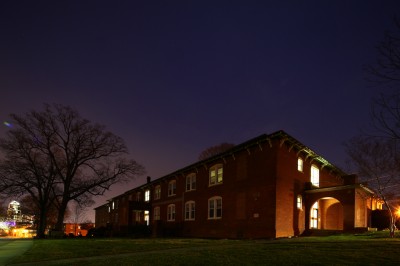
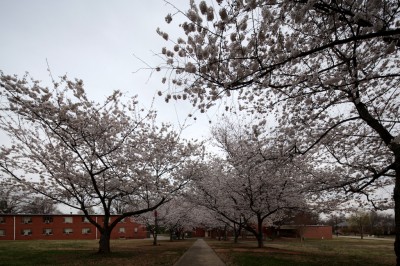
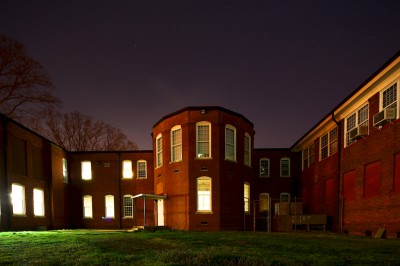
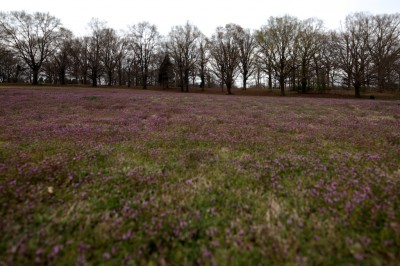
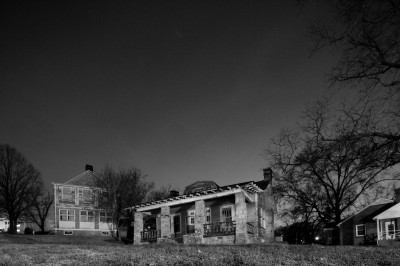
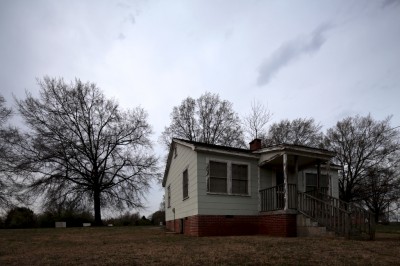
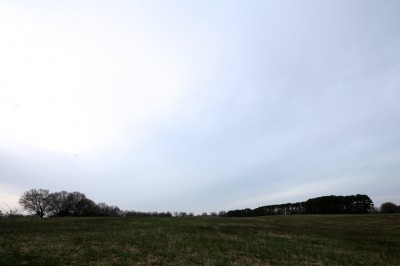
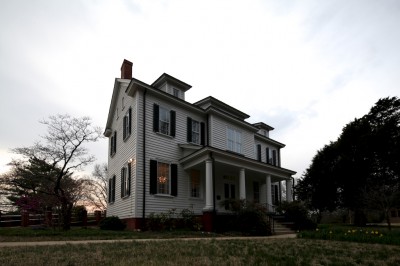
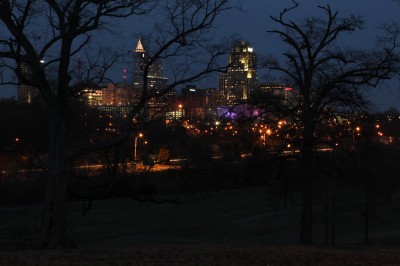
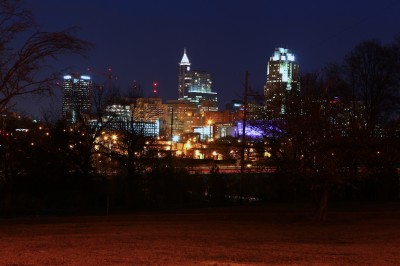
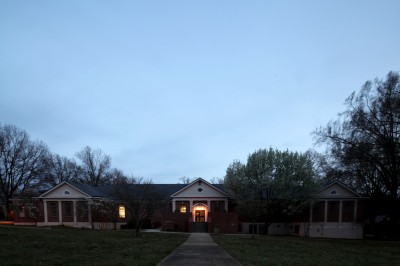
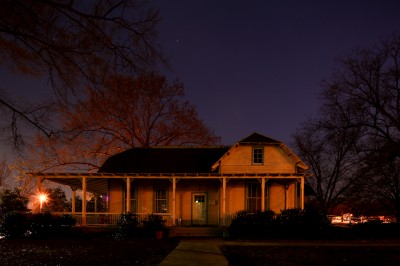
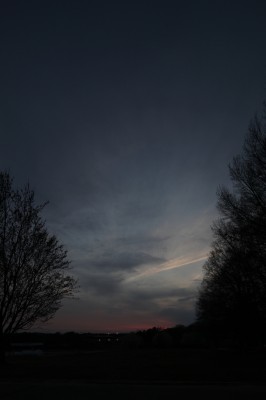
 Sign up for the Newsletter
Sign up for the Newsletter
03/15/2011
If it is given over to development we miss the oppertunity to have a Central Park like New York ciry.
03/15/2011
Seems to me that it won’t fall into private hands either. I like the idea of preserving the entire property for a park. Also I wouldn’t mind some of the edges being used for housing that would frame the park and provide better transition for existing and future development. I would hate for development to the south to eventually back up to the park instead of facing the park. Also think an amphitheater built into Dix Hill (similar to the Greeks)would be stunning.
03/15/2011
Pullen Park is right ACCROSS THE STREET? This would be the biggest mistake they could possibly make if they turn that property into a park. It will hinder future growth and expansion of the downtown area, but I suppose the NIMBY’s will be happy.
03/15/2011
What would be made of the existing buildings?
03/15/2011
This park would serve a completely differnent purpose than Pullen.
I’ve never thought of having housing surround the perimiter but that would definitely contribute to the effectiveness of the urban public space. One of the reasons Fletcher Park is so outstanding is it’s proximity to the residential and commercial areas Glenwood South, Glenwood Brooklyn and Cameron Village. One can grab a to-go meal, some beers and a soccer ball, blanket, book music and frisbee and have an urban retreat within a few minute’s walk. The idea of mixed use public space is enthralling!
03/15/2011
Raleigh is at a stage of growth now where, thinking of future generations, it’s time to make long-term investments that are more ambitious than simple parks. Is it not time for Raleigh to have land set aside for the future construction of a zoological garden? Heck, we could fit a world class zoo *and* parking *and* a public aquarium on this property, with lots of green space preserved, and give people something more meaningful to do *inside* of Raleigh than a new night club or restaurant, or yet another park.
03/16/2011
There’s plenty of opportunity for development around the park. And it will boost all the projects downtown that have broken ground but are currently going nowhere. Developers currently have more land and unfinished projects than customers and I don’t feel the need to give developers the handout of public land to flip for profit. Is that too conservative of me?
03/16/2011
And in a few years we’ll forget how “great” this is and start complaining again about sprawl.
03/17/2011
This is one of the best spots to check out meteor showers and lunar eclipses ITB. Even with the light pollution, there’s such a wide open view of the sky you can check out any of the stellar events regardless of direction.
The issue here reminds me of a smaller issue concerning some land very near Dorothea Dix. Lake Raleigh, now on Centennial Campus, was in danger of being filled and bulldozed to make way for development. I believe it was an NCSU student who campaigned to preserve it, and this area has now become the centerpiece for the entire campus. While the individual architecture on Centennial might not be to everyone’s liking, the master plan represents exemplary “mixed use” development that includes outdoor public space.
It would be great to see Raleigh wrap around the Dorothea Dix property, making it a true “central” park. The long term value added is sure to be greater than filling it in with more condos.
03/21/2011
With green space ever shrinking in and around downtown, having the vision to set this parcel aside for the use and enjoyment of the people is a good thing. For the person who mentioned Pullen Park- Pullen isn’t big enough for the traffic and volume on a good weekend- the parking lot is overflowing and there are cars parked up and down the streets and medians. It should tell us that people who live downtown are also using the green spaces and we need more of them. Pullen has lots of nice things for the kids, but Dix has acres and acres of trees and grasses that can hold thousands at a time. We shouldn’t let this chance escape us- it’s a once in a city history chance to do something big and bold for the people, we are the City of Oaks- some of the most beautiful giant oaks you will ever see are all over the Dix property. Take a walk around, you’ll like it.
03/31/2011
I think if the city enters into some sort of sponsorship it could handle the price. Something like having business sponsor areas to help pay for the full price. In exchange the sponsors name would be on that area- like The Redhat grassy field or Progress Energy playground. Anything to help the city purchase the entire property to protect it from developement!
11/15/2011
Well guy I got news for you and don’t say I didn’t tell you. well search for a town called Canonsburg Pa. and then look at a facility called Western Center. Those poor mental health patients were thrown in community based care homes to make a profit. Yea, Western Center Center sat on hundreds of acres of land. They used that land to build condos, cottages, banks, shopping malls, doctors offices and more. No one can afford anything in that community but the rich. Now that is sad. The community is now called South Point. I refuse to shop in that area not because Im poor but because of all the mentally ill that died because they left. accidental ovedose, drowning, falling, ect. a lot not just a couple died. Sad
12/27/2011
I HOPE AND PRAY THAT THE GENERAL ASSEMBLY WILL NOT SELL THE LAND OF DOROTHA DIX OR LET THEM PUT A PARK ON THE LAND EITHER I AM A FROMER PATIENT OF DOROTHA DIX AND HAD IT NOT BEEN FOR DOROTHA DIX I WOULD NOT BE HERE TODAY I AM SORRY MAYOR MEEKER I WILL HAVE TO KEEP FIGHTING YOU ON THIS ONE I KNOW THAT I HAVE A LOT OF THEM IN THE GENERAL ASSEMBLY THAT DOES NOT WANT IT EITHER PAT HURLEY SAIDS NO LARRY BROWN SAID NO GEORGE CLEAVLAND SAIDS NO THIS IS ONLY A FEW AND THEY WILL KEEP SAYING NO I WILL KEEP SAYING NO MAYOR YOU HAVE YOUR HANDS FULL WITH ME SO YOU JUST NEED TO GO ON YOUR WAY YOU WANT GET IT IF I HAVE MY WAY ROBERT BULLOCK NAMI WAKE BOARD MEMBER WHO EVER READS THIS PLEASE JOIN ME JUST BECAUSE MEEKER POOLE AND DODSON HAS MONEY THAT DON`T MEAN A THING TO ME YOU WANT GET IT SO YOU ALL CAN FIGHT ALL YOU LIKE WE WILL FIGHT TO KEEP IT ROBERT BULLOCK NAMI BOARD MEMBER AND A VEARY STRONG ADVOCATE AND ALL OF YOU SHOULD BE SHAME OF YOUR SELF ANYONE OF YOU CAN HAVE A MENTAL ILLINESS AT ANY GIVEN TIME AND IT COULD BE DIX THAT SAVED YOUR LIFE BULLOCKROBERT94@YAHOO.COM ANY OF YOU CAN EMAIL ME IF YOU LIKE I WILL TALK TO YOU LEAVE DIS ALONE